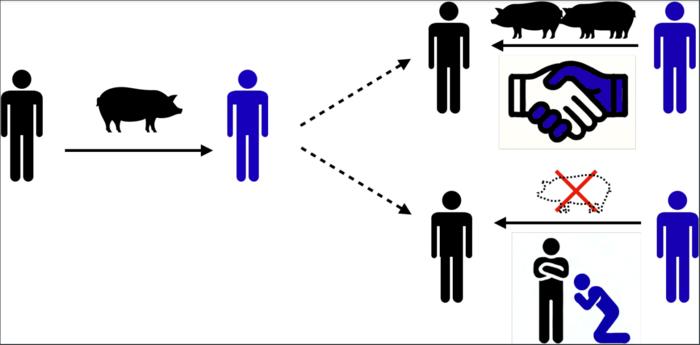New findings provide quantitative criteria for classifying social organizations in human history, together with potential explanatory variables that can be empirically measured for anthropology, history, and archaeology, according to a study published September 3, 2024 in the open-access journal PLOS Complex Systems by Kenji Itao and Kunihiko Kaneko from the University of Tokyo, Japan and Copenhagen University, Denmark (Kaneko) and the RIKEN Center for Brain Science, Japan (Itao).

Credit: Kaneko and Itao, CC-BY 4.0,
New findings provide quantitative criteria for classifying social organizations in human history, together with potential explanatory variables that can be empirically measured for anthropology, history, and archaeology, according to a study published September 3, 2024 in the open-access journal PLOS Complex Systems by Kenji Itao and Kunihiko Kaneko from the University of Tokyo, Japan and Copenhagen University, Denmark (Kaneko) and the RIKEN Center for Brain Science, Japan (Itao).
Human societies have experienced transitions between different types of organizations, including bands, tribes, chiefdoms, and kingdoms. However, quantitative characterizations of the types and mechanisms of transitions have yet to be established. Meanwhile, anthropologists have observed that gift giving is prevalent in traditional societies and that it enhances social status by imposing reciprocal obligations on others.
In the new study, Itao and Kaneko present a simple model of competitive gift giving that describes how gifts bring goods to the recipient and honor to the donor, and simulate social change. In particular, the authors demonstrated that competitive gift giving generates socioeconomic disparities characterized by power law distributions of wealth and social reputation.
Numerical simulations revealed transitions between four phases with different distribution shapes of wealth and social reputation. The phases included the band, without economic or social disparities; the tribe, with economic but without social disparities; the chiefdom, with both; and the kingdom, with economic disparity and weak social disparity except for an outlier, namely, the monarch. The emergence of strong disparities was characterized by power law distributions and was attributed to the rich-get-richer process. In contrast, the absence of such a process led to exponential distributions due to random fluctuations. In addition, the phases depended on parameters characterizing the frequency and scale of gift interactions.
In other words, the emergence of several phases of social organizations are quantitatively characterized by the shape of the wealth and reputation score distributions. In the band phase, both distributions are exponential. In the tribe phase, only the wealth distribution obeys a power law. In the chiefdom phase, both distributions are power laws. And in the kingdom phase, the score distribution is exponential for all individuals except the monarch.
Overall, the results demonstrate the emergence of four phases of social organizations characterized by the degrees of economic and social disparities. The study also provides theoretical support for empirical findings that band societies have less economic inequality than do the other classes, that the presence of social inequality distinguishes chiefdoms and kingdoms from the others, and that monarchs are outliers in the distribution. According to the authors, their constructive model, guided by social scientific theory, can provide the basic mechanistic explanation of social evolution and integrate theories of the social sciences.
The authors add: “Gift-giving interactions drive social change. Its frequency and extent determine social organization structures.”
############
In your coverage, please use this URL to provide access to the freely available article in PLOS Complex Systems:
Citation: Itao K, Kaneko K (2024) Emergence of economic and social disparities through competitive gift-giving. PLOS Complex Syst 1(1): e0000001.
Author Countries: Denmark, Germany, Japan
Funding: This research was supported by the Grant-in-Aid for Scientific Research (A) (20H00123) from the Ministry of Education, Culture, Sports, Science, and Technology (MEXT) of Japan, JSPS KAKENHI Grant Number JP21J21565 (KI), and Novo Nordisk Fonden Grant Number NNF21OC0065542 (KK). The funders had no role in study design, data collection and analysis, decision to publish, or preparation of the manuscript.
Journal
PLOS Complex Systems
COI Statement
Competing Interests: The authors have declared that no competing interests exist.



